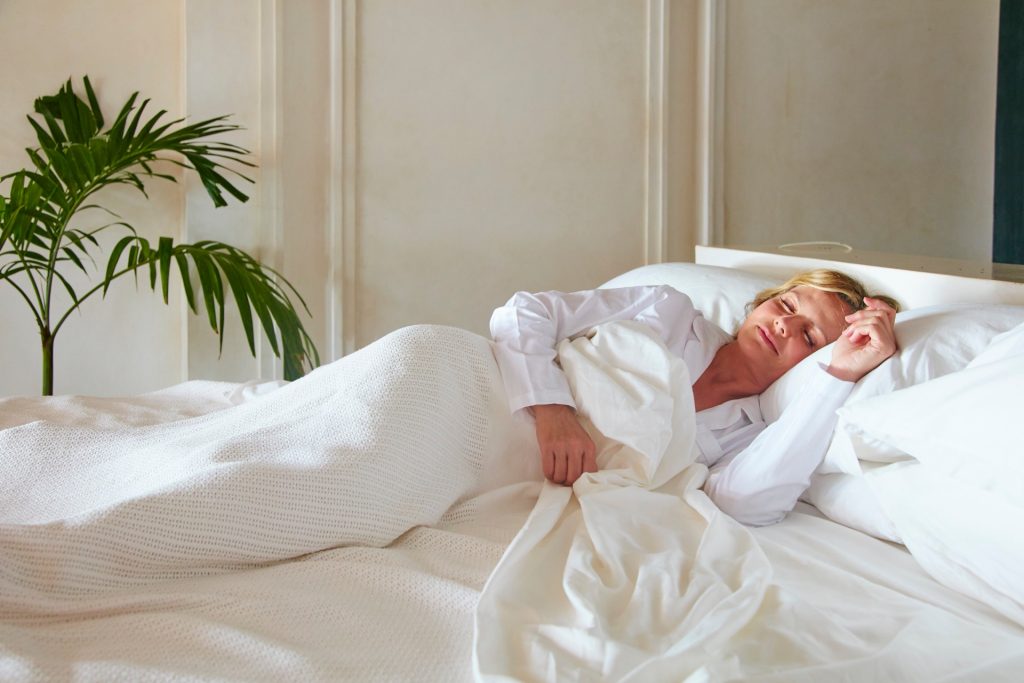Lifestyle
Reduce stress in four easy steps
Looking to reduce stress? We team up with GP and bestselling author Dr Rangan Chatterjee to explain the simple steps you can take for a calmer life

Learning to reduce stress is an important element of wellbeing, especially if we want to live long, happy and healthy lives.
Studies have demonstrated that chronic stress contributes to the development of obesity, type-2 diabetes, high blood pressure, cardiovascular disease and Alzheimer’s.
While our stress response originally evolved to help us run away from danger, we’re less likely to encounter a lion these days. Instead, we may find ourselves stressing to different stimuli, like events on the news or receiving work emails long after we’ve clocked off.
If this all sounds familiar, it could be high-time to calm things down. Thankfully, there are many things we can do to reduce stress, as Dr Rangan Chatterjee explains.
Step 1: Reduce stress with a sense of purpose
Having a sense of purpose is the foundation for a more stress-free life.
“When we consider stress, we don’t usually think of meaning and purpose,” says Dr Chatterjee. “But living a life that’s devoid of these qualities is inherently stressful.”
Many patients that he treats at his GP surgery are stopped in their stress-busting tracks for this reason.
“Those without purpose are not their own master,” he explains. “They have no control, and things are just happening to them. The roles they have taken on in life are in charge of them, rather than the other way around.”
In contrast, those that live a more purposeful life enjoy significantly better health and wellbeing. Studies have shown that these individuals sleep better, live longer and are less likely to develop heart disease and depression.
The solution: focus on the three Ms

If a lack of purpose is fueling stress, Dr Chatterjee advises taking five minutes to an hour each morning to focus on the three Ms: mindfulness (deep breathing, being in nature or meditation, for example), movement (such as walking, stretching, t’ai chi or yoga), and mindset (sending your thoughts in a positive direction with a moment of gratitude or affirmation.)
Step 2: Reduce stress in your relationships
Though some say we’re living ultra-connected lives, Dr Chatterjee doesn’t buy it.
“The nutritional equivalent of the kind of connection we’re having today is a can of fizzy pop and a chocolate bar for breakfast,” he says.
“So many of the stress-related problems I see in my surgery have, as a root cause, a chronic lack of connection.”
George Slavich, a researcher at the University of California, has found that rejection and/or isolation switches genes into a more inflammatory state. In the long term, this stress response weakens the immune system and predisposes the lonely and disconnected to type-2 diabetes, depression and obesity.
The solution: Find meaningful connections

It can seem challenging to make new human connections at the moment while we’re all self-isolating, but there are plenty of opportunities online.
Look for local groups that have taken their interests online – there’s a wealth of activities you can get involved in from yoga and Pilates to singing and writing.
New friendships and surprise connections can ease stress, helping to shift the body into a more relaxed and reparative state.
Step 3: Reduce stress in your body
“When we’re having a bad day, we experience stress as a physical sensation: the tightening stomach; the lurch in the stomach; dryness in the mouth; restless motion in the leg,” says Dr Chatterjee.
“What’s not so intuitively obvious is that the body can also be the cause of stress.”
In fact, just as our brain monitors the external environment for signs of threat, the same process is taking place within the body. A stress response helps to flush out toxic substances – this is why we deliver stress hormones in the form of an EpiPen to those having an allergic reaction.
The same applies to a smaller degree for sugar-loaded, ultra-processed foods: ‘If the signals sent from the body are bad, we become stressed,” Dr Chatterjee explains.
The solution: Treat yourself to sleep

Instead of staying up late with a takeaway pizza and half a bottle of wine, Dr Chatterjee recommends ‘gorging on a generous portion of sleep’ after a difficult day.
“It’s one of the most effective ways to take you out of a stress state,” he explains. It’s also free!
Step 4: Reduce stress in your mind
There’s no doubt that fast-paced, ultra-stimulating modern-day life is at the root of why we’re all tearing our hair out.
“We’re filling our heads with stressful information and bombarding ourselves with noise and lights,” says Dr Chatterjee.
“Just as our bodies need fuel, minds need stillness – yet the thought of relaxing our minds is often seen as laziness. Giving yourself permission to relax is often the first step in tackling stress.”
The solution: Take a digital detox

Whether it’s a lazy Sunday afternoon or simply on an evening after work, taking a phone-free break can work wonders for the mind and body.
“Often, I’ll be with my family on a Sunday, even just for half a day, without my phone,” says Dr Chatterjee.
If your phone is needed for emergencies, disabling mobile data will mean you can still be reached via texts and calls without getting dragged into a social media spiral.
This content has been adapted from Dr Chatterjee’s book, The Stress Solution





